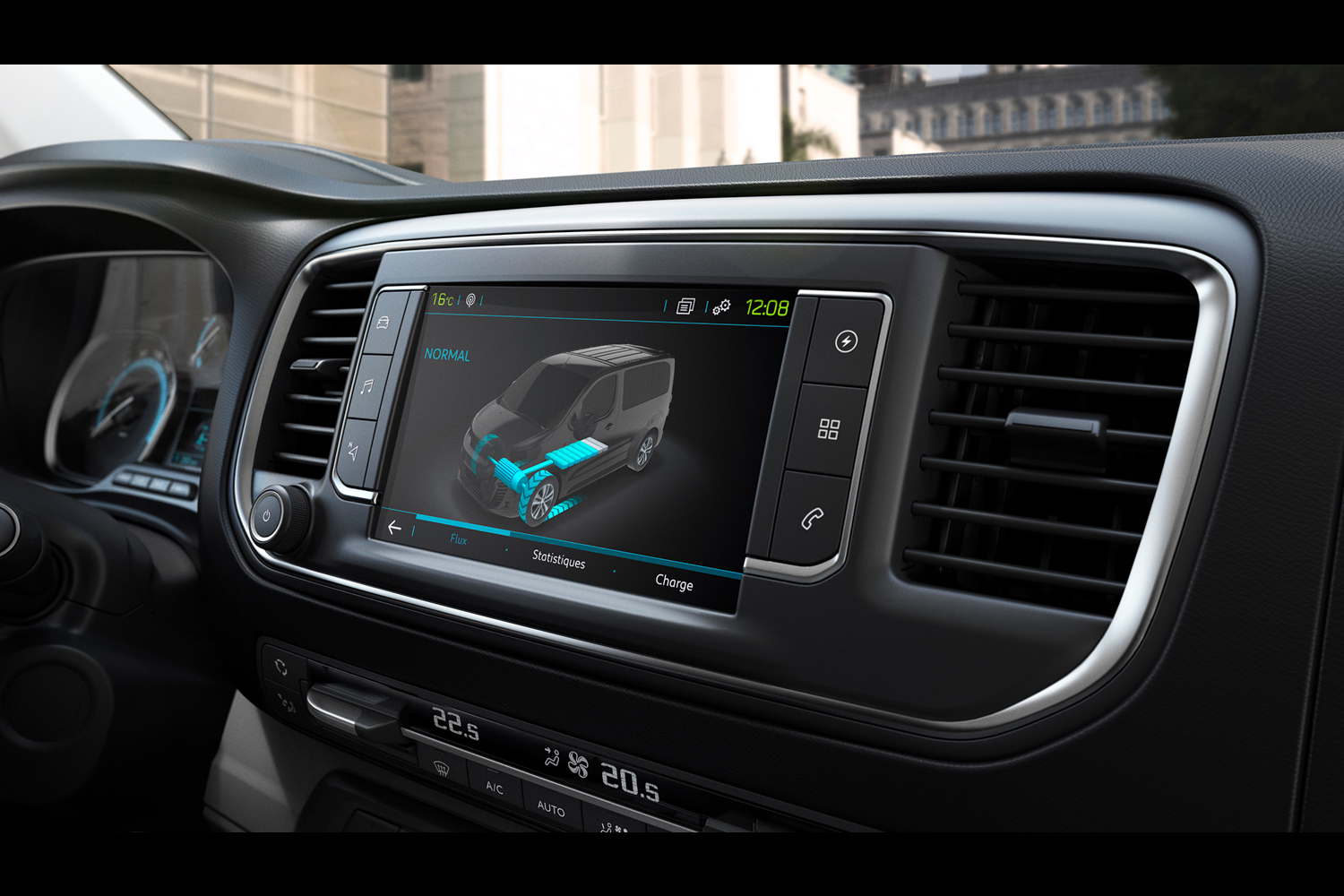Peugeot has given us the details of its new e-Expert electric panel van, which will go on sale later this year. Production starts in the second half of this year, at Peugeot's factory in Valenciennes, France.
Peugeot growing its European van market share
Peugeot reckons that the market for compact vans in Europe stretches to some 750,000 units every year (well, it did before coronavirus hit...) and the French car maker has been increasing its share of the market since it launched the current-shape Expert van in 2016.
As part of a major upgrade of the Expert lineup, Peugeot is now introducing an all-electric model, the e-Expert. You'll spot the electric version from the subtle e-Expert badge at the rear, the charging flap in the front wing, and the 'dichroic' Lion badges (basically, they've been covered with a material that both filters and refracts light, adding a little more sparkle).
Inside, there are instruments with a mixture of analogue dials and digital displays (with, natch, specific battery and electric info), a central touchscreen with custom graphics and a TomTom 3D map navigation system (vital for finding charging points when you're out and about), a tiny toggle switch for the automatic transmission (well, actually it's only a single gear, but you get to pick from forwards and backwards at least), a drive mode selector with Eco, Normal or Power modes, and a button for the electric handbrake.
Variable power output
Twiddle the drive selector, and you can raise or lower the power coming from the electric motor. In Eco mode, power is restricted to 60kW (80hp) to keep the range as high as possible. Normal, which is more for everyday use, raises the power output to 80kW (that's 107hp) while Power gives you the electric motor's full 100kW (134hp). There's 260Nm of torque to play with too.
There are also two baking modes - a Normal setting, and one called 'Emphasised'. You select that by switching to the B mode of the gearbox, which gives you stronger deceleration when you lift off the throttle.
That central touchscreen comes with Apple CarPlay and Android Auto connectivity, while you can also use it to check your battery levels, schedule deferred charging when you plug in (to make best use of cheap overnight electricity) and have a look at your electric consumption. The main instrument panel also includes a battery power gauge, of course, as well as an indicator that shows you how much your air conditioning or heating is draining the battery.
Underneath, the e-Expert uses the same EMP2 platform as Peugeot's passenger car range (you could think of it as a big, square, 5008 if you like...) and can be had with a choice of two batteries. There's a 50kWh version, designed for those who need a van for primarily urban deliveries, with a WLTP range of 230km, and a larger 75kWh battery, for those that need to use the open road a little more, with a range of 330km.
Choice of charging speeds
There is also a choice of two on-board charging systems. There's a basic 7.4kW charger, which when plugged into a standard wall-mounted home charger takes around seven hours (for the 50kWh battery) or 11 hours (for the 75kWh battery) to do a full charge. Optionally, you can have an 11kW which can charge in between five and seven hours (depending on the battery) from a faster wallbox or public charging point.
Hook the e-Expert up to a public rapid charger, of up to 100kW, and it'll bring the battery from flat to 80 per cent in 30 minutes for the 50kWh battery, or 45 minutes for the 75kWh version. Needless to say, you can monitor and control the charging process, as well as pre-cooling or pre-heating the cab while the van is on charge, from the MyPeugeot smartphone app. Once you're on the move, you can keep warm from the chunky 5kW cabin heater, or optional heated seats. Peugeot says it will also provide home-charging solutions, and will offer preferential access to public charging points. There will also be a specific service and roadside assistance programme for the e-Expert, while the battery itself is guaranteed for eight years or 160,000km.
The e-Expert's battery is fitted under the floor, so Peugeot says that there's no change in the van's practicality. It'll tow up to 1,000kg, and the turning circle, for the smallest version, is just 11.3 metres.
In the cab, you can have a modular three-seat layout, with a mobile office function built-in, or a two-seater version with extra storage space. The maximum weight that the e-Expert can haul is 1,275kg, and you'll be able to choose from three different body lengths and cargo volumes.
















